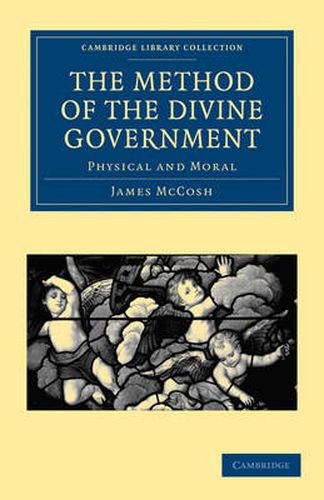Readings Newsletter
Become a Readings Member to make your shopping experience even easier.
Sign in or sign up for free!
You’re not far away from qualifying for FREE standard shipping within Australia
You’ve qualified for FREE standard shipping within Australia
The cart is loading…






This 1850 edition of The Method of The Divine Government is the Scottish philosopher and clergyman James McCosh’s influential account of how God’s providence, which in his opinion is an unquestionable fact, governs the world in both a physical (external) and in a moral (internal) sense. The latter is particularly connected to the many layers that make up man’s conscience. This second edition, which consists of four parts (‘books’) and an appendix, differs from the original version as McCosh pays far more attention to first principles than to fundamental ones. He seeks to pinpoint God’s character and probes the depths of man’s conscience (First Book) and in the following he delves into the physical aspects of God’s government, paying particular attention to Comte’s Positivism. McCosh devotes part three to a detailed analysis of the human mind and moral nature and finally in the fourth part he reconciles God and man.
$9.00 standard shipping within Australia
FREE standard shipping within Australia for orders over $100.00
Express & International shipping calculated at checkout
This 1850 edition of The Method of The Divine Government is the Scottish philosopher and clergyman James McCosh’s influential account of how God’s providence, which in his opinion is an unquestionable fact, governs the world in both a physical (external) and in a moral (internal) sense. The latter is particularly connected to the many layers that make up man’s conscience. This second edition, which consists of four parts (‘books’) and an appendix, differs from the original version as McCosh pays far more attention to first principles than to fundamental ones. He seeks to pinpoint God’s character and probes the depths of man’s conscience (First Book) and in the following he delves into the physical aspects of God’s government, paying particular attention to Comte’s Positivism. McCosh devotes part three to a detailed analysis of the human mind and moral nature and finally in the fourth part he reconciles God and man.